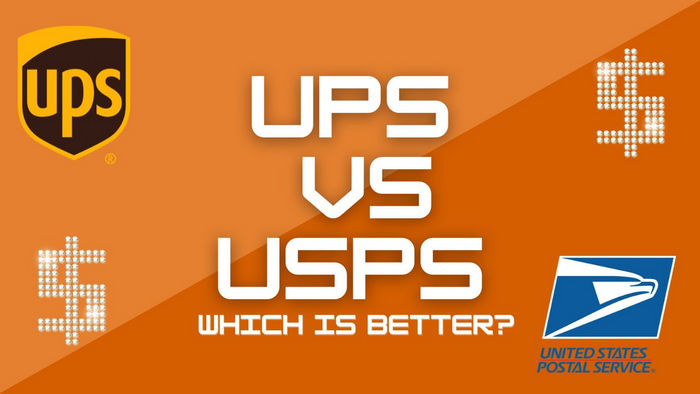4 Factors to Consider When Entering an International Market
The COVID-19 is a global disaster for all humankind. It negatively impacts most people's lives, such as income decrease, unemployment, limited leisure activities, etc. All these factors help eCommerce divert more attention and budgets from the consumers.
It changes the way we live and the belief we have. Fortunately, the pandemic brings some sound developments to our life. For example, it accelerates the eCommerce business growth and changes the old brick-and-mortar store shopping habits. It is safe to say that eCommerce shopping is booming.
According to the cross-border eCommerce growth report of UNCTAD, Global eCommerce jumps to $26.7 trillion due to COVID-19. What is underneath the surface of data is that international shoppers can buy more goods but pay less.
A lot of global consumers have tasted the convenient and economical shopping experience of online shopping. At the pandemic's start, the FIS survey of 33,000 people across 12 countries found 38% of people shopping more online.
The popularity of online shopping is not limited to the domestic eCommerce market. More consumers buy products unavailable in their home country or purchase products at a more competitive price through cross-border online shopping. Worldpay found that 55% of online shoppers worldwide have purchased from another country in the last 12 months.
Cross-border eCommerce will be the next profitable business. Merchants can no longer ignore the need for a comprehensive global eCommerce strategy because more competitors will enter their territory.
The Cross-border eCommerce Logistics Is the Core.
With the rapid development of cross-border eCommerce, cross-border logistics is becoming more critical because logistics will influence the ultimate performance.
At present, the cross-border e-commerce logistics market is enormous, but it is still in an extensive stage. There are high shipping fees, slow delivery, difficulty in order tracking, and poor return management.
Policy issues such as tariffs and customs clearance are also a headache for cross-border eCommerce sellers.
4 Problems Faced by eCommerce Companies in the Global E-commerce Market
1. Customs Clearance
For cross-border eCommerce logistics, whether FBA(Fulfillment by Amazon) or overseas warehouses, customs clearance is a big problem.
FBA does not provide destination customs clearance. Some third-party overseas warehouses provide customs duties and other related services. Still, most cross-border eCommerce sellers mainly rely on logistics companies for customs clearance.
When cross-border eCommerce logistics passes through customs, there are often unexpected issues, ranging from the need for supplementary information to the deduction of goods or even the confiscation of goods. In addition to bringing many uncertain factors to logistics and timeliness, extending the delivery time brings considerable losses to the seller.
The reason for incurring the above incidents is that sellers ignore the importing country's regulatory system and the destination country's trade barriers and other regulations. The main reason is that logistics companies hand over the customs declaration work to a third party. These third-party companies do not prioritize it, or the customs clearance company is unprofessional.
And some logistics companies will "advertise" that they can ship all products, no matter what eCommerce platform and which country they reach.
Solution: Some logistics companies promise to provide sellers with customs declaration services. When they win the contract, they hire a third-party customs declaration company to do the work for them.
Therefore, in this process, sellers must work with professional customs brokers to avoid such problems. These professional customs brokers will help reduce supervision costs, improve customs clearance efficiency, and prevent tax evasion.
Some professional and trustworthy logistics companies set up offices in the destination country to deal with customs declaration and fast customs clearance. The establishment of these branches also allows sellers to track the goods more timely.
For example, customs clearance in the UK has two modes: general cargo customs clearance and express customs clearance. When eCommerce sellers choose a logistics company for customs clearance in the United Kingdom, sellers must select a customs clearance company with "express customs clearance qualification."
Customs clearance companies with express customs clearance qualifications are relatively fast in customs clearance of goods. At the same time, one of the packages in a parenting order has an under-declared value, or the goods are inspected, which will not affect the customs clearance of other goods.
2. Taxation
There have been many fines or problems caused by taxation issues. Some countries impose VAT on cross-border e-commerce. Sellers who have used overseas warehouses but have not registered VAT will be considered illegal if they continue to sell.
Except for a few unprofessional companies, a small number of eCommerce logistics providers promise sellers with low shipping rates and tax inclusive services to obtain more orders. These companies can only reduce necessary VAT work to make profits. In this regard, cross-border sellers should also be vigilant.
Take Europe as an example. At present, exported goods enter the European market through London and Amsterdam. The taxation of the two places is as follows:
The higher the product price, the greater the tax, and cross-border e-commerce sellers must make true, timely, and accurate tax declarations. Suppose you deliberately delay, make mistakes, or make false declarations. In that case, HMRC may punish you to varying degrees, including cargo seizures, account restrictions caused by reporting to e-commerce platforms, and fines.
Solution: Each level of price needs to pay a different tax. Sellers must have a clear understanding of the tax system. When the promised price of logistics is lower than the regular price, sellers must be prudent.
Sellers should not trust the so-called special channels and guarantees. For product safety, sellers must declare tax through official channels for customs clearance. If you do not have a VAT account, you must understand the qualifications and operating procedures of the logistics company.
3. eCommerce Returns Management
In cross-border eCommerce, product return and exchange have become more common because of dissatisfaction and product damage.
FBA return and exchange is an inevitable problem. FBA has corresponding requirements for the category, labeling, and packaging of incoming goods. If there is any discrepancy, sellers will face the problem of return.
In addition, Amazon buyers have free returns with limited strains through FBA, which will increase the return rate of products. Therefore, sellers must ensure the quality of the products and make easy-to-understand product instructions. Many buyers return the goods because they don't know how to use the products.
ECommerce Returns Process Solution: Sellers can choose overseas warehouses to provide global eCommerce return service. At present, some overseas warehouses can provide services such as after-sales maintenance and returning goods to the shipping country.
For FBA, if the eCommerce return policy judges that the goods need to be returned, sellers can work with a warehouse that provides re-packaging and re-labeling services. All work can be done by eCommerce returns software now. Some of the software offers eCommerce returns tracking.
4. Cross-border Shipping Localization
Overseas warehouses, international eCommerce shipping, local delivery, customs clearance are important parts of localization. Choosing a suitable courier company in the last mile delivery is also a big test for logistics companies.
Price should not be the only factor a cross-border eCommerce seller considers when choosing a cross-border logistics company. Punctuality, coverage, and customer experience are also vital to the business.
No logistics company can cover all places in every country. For example, DPD has not signed a priority listing agreement with Amazon in France and Spain. DPD needs to schedule for delivery in these two countries. The delivery speed will be affected, so it is not suitable for these two countries.
E-commerce sellers also need to consider the size and attributes of items. For example, in Japan, Sagawa delivery has a single weight and size limit. A single piece cannot exceed 50KG. The largest width cannot exceed 2 meters, and the sum of the width cannot exceed 2.6 meters.
If it exceeds the limit, Sagawa can not deliver the shipment.
Local Logistics Solution: Before working with an eCommerce logistics service provider, it is necessary to know which local delivery company the logistics company cooperates with. Sellers need to understand that the acceptable size and attributes of the product in the target market, the capability, and the reputation of the partner logistics company.
Beyond the shipping cost, it is also necessary to consider whether the logistics company has a listing agreement with Amazon, restrictions on certain items.
Customer service is also an essential part of localization. FBA can only communicate with customers in English. The email communication response will not be timely, which has brought a lot of problems to the seller. For overseas logistics companies, customer service is a shortcoming.
The situation has improved now, but it is still necessary to check whether they speak your language. Besides, sellers should also pay attention to the qualification and requirements for different products in different countries.
For example, in Japan, a food sanitation quarantine certificate issued by the Japanese health department is required for items with direct contact with food. When importing equipment with direct contact with the human body and a massage function, sellers need to provide relevant medical certifications.
For toys, they must be a toy for children over six years old and must have a precise age group mark on the outer packaging of the toy. Otherwise, Japan will clear customs according to the food category and provide information on food-related customs clearance.
The above items will take a longer time to pass customs clearance. In addition to high storage fees, if the provided information is not complete, the products cannot be imported and must be destroyed. It will incur product destruction costs.
Therefore, for the qualification requirements of some countries, the seller should confirm with the logistics company before shipping them. Suppose the recipient cannot provide food hygiene and quarantine certificates, medical certificates, and other materials. In that case, it is recommended not to send these items.
Final Thought
The above are the 4 common international eCommerce challenges. Cross-border eCommerce logistics also face many international eCommerce fulfillment problems such as order tracking difficulty, parcel damage, and even package loss.
With the rapid development of logistics technology, some logistics companies can perform parcel real-time order trackings, such as DHL, FedEx, and 4PX. Still, it is not easy to track all the packages shipped. Running a cross-board eCommerce business means you probably need to ship your products to every corner of the world in different eCommerce platforms. Without an order management system, going international may be the challenge facing your business plans.
In the cross-border logistics system, the goods often need to go through four or more transshipments before finally reaching the customer. After passing through various processes, the package is very fragile. Besides, package loss is a common incident in cross-border logistics.
Parcel damage or loss brings an awful shopping experience to customers and dramatically increases the operating costs. Therefore, sellers need to use global fulfillment tools or shipment tracking software to monitor the package status timely.
KeyDelivery can help international eCommerce businesses to track and trace a global order. We make tracking orders more efficient and affordable. Now Connect KeyDelivery order tracking system is free!
Recommended Articles:
The Best eCommerce Logistics Companies in NA & EU
Logistic Partners for eCommerce Sellers Local and International
Growth Tools for eCommerce Cross-border Platforms
What to Consider When Expanding a Business Internationally
How to Expand Online Business Internationally
How to Pack Products to Sell Internationally & Safely
International eCommerce Strategies for Lowering Ecommerce warehouse & Logistics Cost
How Long Does It Take To build an eCommerce website
8 Tips For Improving Warehouse Efficiency( With Order Management Software Recommendations)
10 Reasons Why Online Sellers Need Package Tracking Software






